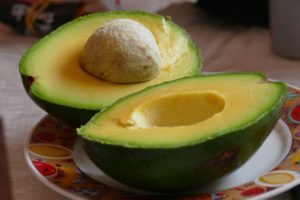The pollinating action of bees is proven to be crucial for the plants’ flora cycle. This importance is pointed out by the Food and Agriculture Organization of the United Nations (FAO), calculating that more than 70% of the 100 crops that provide most of the food consumed by humans are pollinated by bees.
Indeed, no bees, no food. However, these vital insects are globally at risk because of the Neonicotinoid pesticides that are still applied in many countries, including Costa Rica.
For more than a decade the FAO has been investigating the relationship of Neonicotinoid pesticides with the rapid and worrying decrease in bee populations worldwide due to their cause. In February 2018, the European Food Safety Authority concluded through the study of scientific evidence that the use of Neonicotinoids in agriculture does pose a risk to bees, both wild and honey bees.
Following this report, the European Union reached a consensus in April 2018; it has decided to ban the use of 3 of these compounds: Clothianidin, Thiamethoxam, and Imidacloprid, which are used in corn, cotton, and sunflower crops, among others. The Environment Committee of the European Parliament (EP) ensures that Neonicotinoid insecticides pose “very acute risks” to bees.

One of the most dangerous characteristics of Neonicotinoids is that they are persistent, meaning that pesticides can remain in the soil for several years. Therefore, plants that grow on soils previously exposed to these pesticides can absorb them through their roots and become a danger for bees.
This decision taken by the European Union must also be considered by other pesticide-consuming countries, such as ours, which ranks 1st in the application of poisons per hectare of agricultural crops.
As the European authorities point out, the health of bees is related to biodiversity, food production, and environmental health. In Costa Rica, there are more than 650 species of bees out of which 58 are species of stingless bees that are grouped socially with diverse and abundant genera, such as Cephalotrigona, Frieseomelitta, Nannotrigona, Partamona, Plebeia, Scaptotrigona, Scaura, Trigona, Tetragona, Tetragonisca (Espinoza et al., 2015).
Costa Rica is a country with a high biodiversity. Nevertheless, since it is promoted as a nation that protects the environment, questions arise such as:
Has the corresponding environmental risk assessment been carried out to guarantee the protection of the environment when registering these products? What actions will the authorities take in Costa Rica in light of this new information?
Still, without having answers to those questions, the precautionary principle should be applied and the pesticides should be banned. Furthermore, based on the fact that Europe bans these pesticides having only one species of European bee (Apis mellifera) and that, in our country, we have more than 650, many of them new to science, then; should we not go to the forefront of Europe and prohibit these poisons?

With the Neonicotinoids, the remedy is worse than the disease. The crops of avocado, coffee, melon, orange, etc., depend on bees. Without these wonderful farmers’ allies, it would not be possible to obtain any harvest. They have already messed it up in the area of Los Santos. For trying to eliminate the mites, they were left without bees and, therefore, without avocados. No bees, no harvests; no harvests, no food; no food, no life. Just as simple as that!
